Facebook Prep New 60GHz Terragraph Wireless Broadband Tech
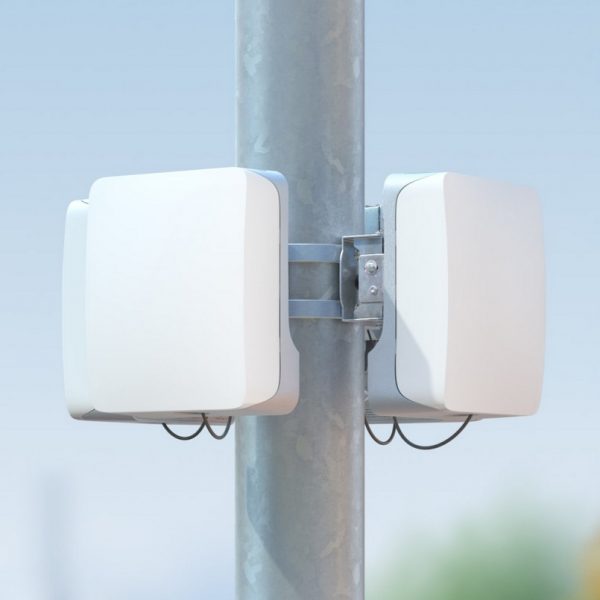
After several years of development Facebook’s networking division is finally getting the commercial UK launch of their new Terragraph wireless broadband technology off the ground. This uses a mesh of small cell style 60GHz (mmW) base stations to distribute a gigabit speed broadband ISP connection across communities.
The idea of using the 60GHz millimeter Wave (mmW) band to create a mesh style outdoor Fixed Wireless Access (FWA) network is a fairly recent development (note: the indoor focused 802.11ad WiFi standard has been using 60GHz for years), although we have seen similar technology being deployed by Broadway Partners in rural Wales via the CCS Metnet 60G platform (here) and a few trials with other setups have also taken place.
The use of the 60GHz band enables operators to access a lot of extra spectrum frequency in order to send data, which is excellent for achieving gigabit speeds, except the signals are so weak that they can’t travel very far before losing too much performance (c.250 metres). However by adopting the mesh approach it’s possible to reach further (i.e. each base station acts a bit like an access point and helps to extend the signal for other units).
In other words, a 60GHz mesh FWA network could in theory make more sense in areas where laying optical fibre for FTTP would be prohibitively expensive. In that sense Facebook’s rival Terragraph approach isn’t massively different from the others, except that they have secured significant support from key equipment vendors including Cambium Networks, Common Networks, RadWin, Mikrotik, Siklu, Nokia and Qualcomm.
The strong commercial support for Facebook’s solution, which appears to be a bit simpler than others (based on the WiFi standard), is what could help to make this technology much more accessible to ISPs. Trials have already taken place in a number of rural communities, such as via Deutsche Telekom in Hungary where homes achieved ultrafast broadband speeds of 500Mbps.
The underlying standard being used in this new kit is 802.11ay, which is technically an enhancement to the original indoor focused 802.11ad (WiGig) that first introduced the 60GHz band to WiFi. The new standard quadruples the bandwidth to 8.64GHz and enables MIMO up to 4 streams. In theory this can deliver speeds of 20-40 Gigabits per second or more, but as per the above example that often isn’t so easy to attain in the real-world (Terragraph is aiming for more like 1Gbps to homes).
The new technology also leverages solutions that were originally created to help manage Facebook’s massive data centre infrastructure, such as IPv6-only nodes, an SDN-like cloud compute controller, a new modular routing protocol for fast route convergence and failure detection.
The company also re-architectured the MAC layer to solve the shortcomings of TCP/IP over a wireless link. “By implementing a high performance TDMA-TDD MAC, we saw up to 6x improvement in network efficiency and at the same time made TCP/IP predictable compared to the existing Wi-Fi/WiGig standard,” claims Facebook.
Facebook claims to have tested all of this new kit in both rain and snow without any problems, which has often been a concern due to the inherent weakness of signals in the 60GHz band (i.e. it’s easily disrupted, particularly by physical objects).
At this stage Terragraph is a fairly new entrant and it remains to be seen how much of an impact they’ll have, although the extra competition alone should help to drive down kit costs and that’s good news for broadband ISPs. The fact that the technology has such strong support and is using a familiar standard will also help its chances.
The first commercial kit is expected to enter the United Kingdom and other countries this summer 2020.
Mark is a professional technology writer, IT consultant and computer engineer from Dorset (England), he also founded ISPreview in 1999 and enjoys analysing the latest telecoms and broadband developments. Find me on X (Twitter), Mastodon, Facebook and Linkedin.
« Three UK, O2 and Vodafone Confirm Plan for Reopening Shops
The Curious Case of a Muddled FTTP on Demand Installation »
Latest UK ISP News
- FTTP (5507)
- BT (3513)
- Politics (2534)
- Openreach (2296)
- Business (2259)
- Building Digital UK (2243)
- FTTC (2042)
- Mobile Broadband (1970)
- Statistics (1787)
- 4G (1661)
- Virgin Media (1615)
- Ofcom Regulation (1458)
- Fibre Optic (1393)
- Wireless Internet (1388)
- FTTH (1381)







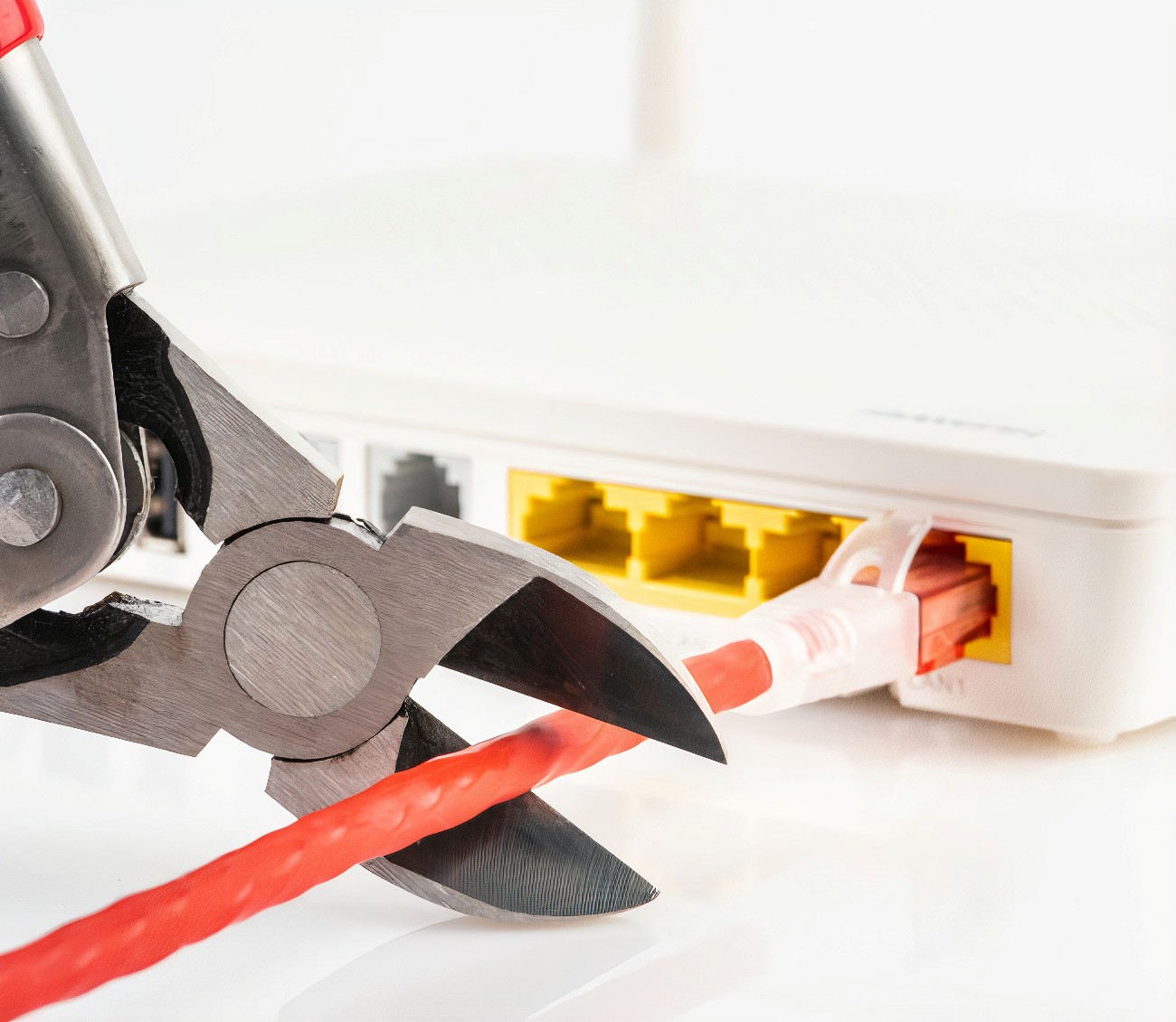
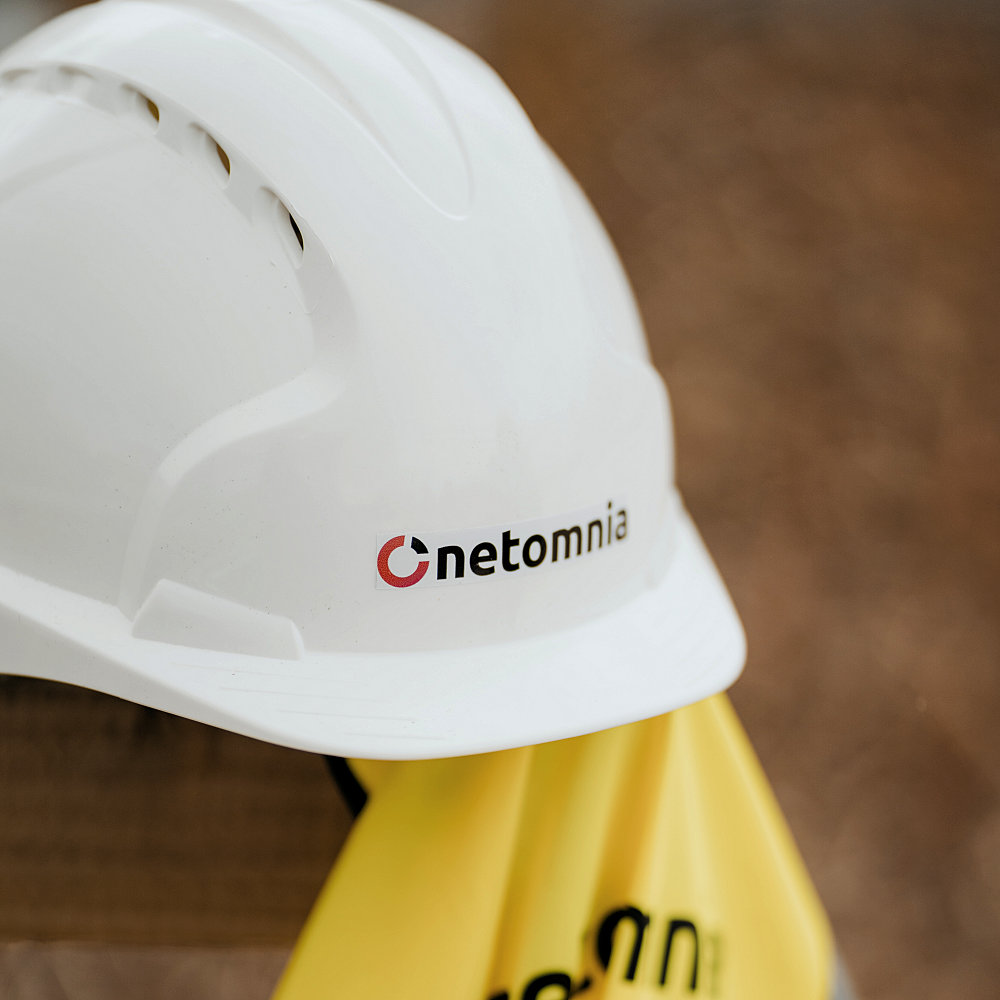
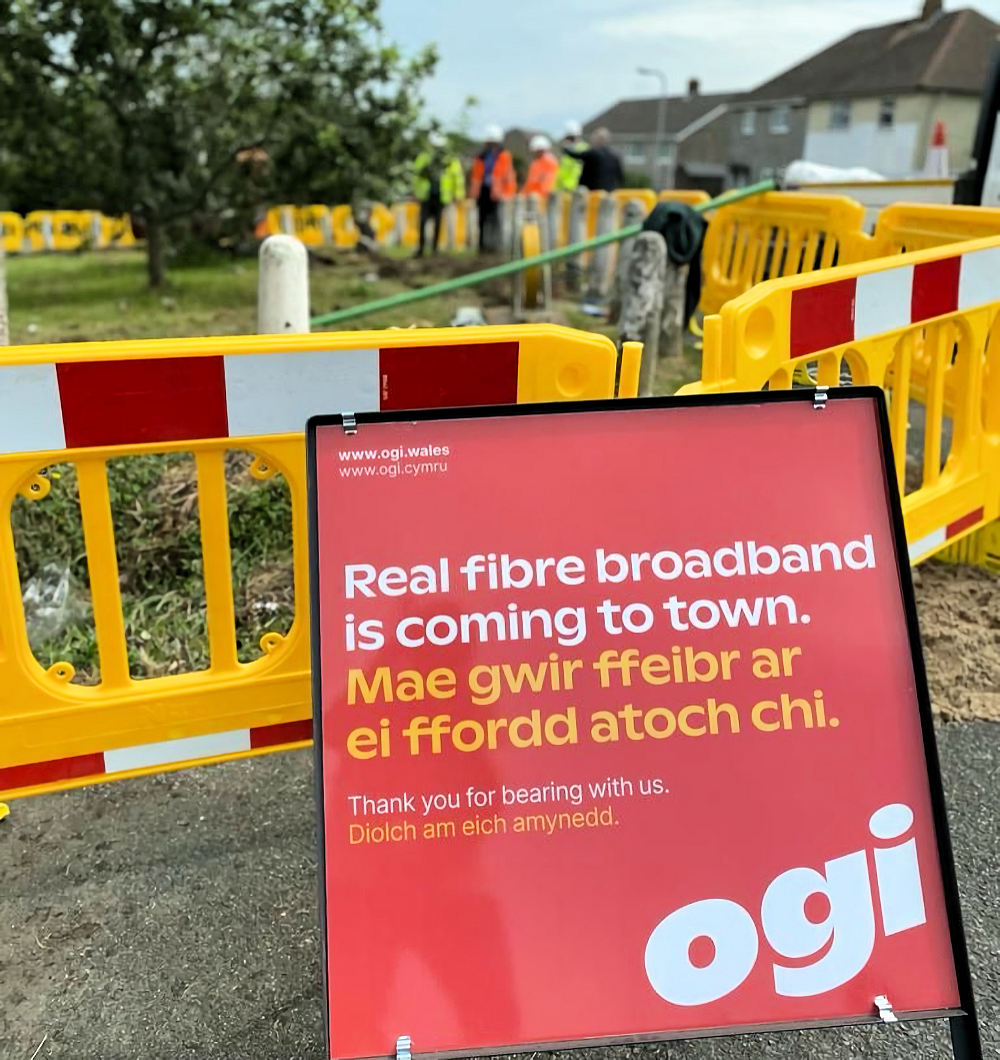



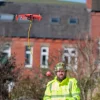









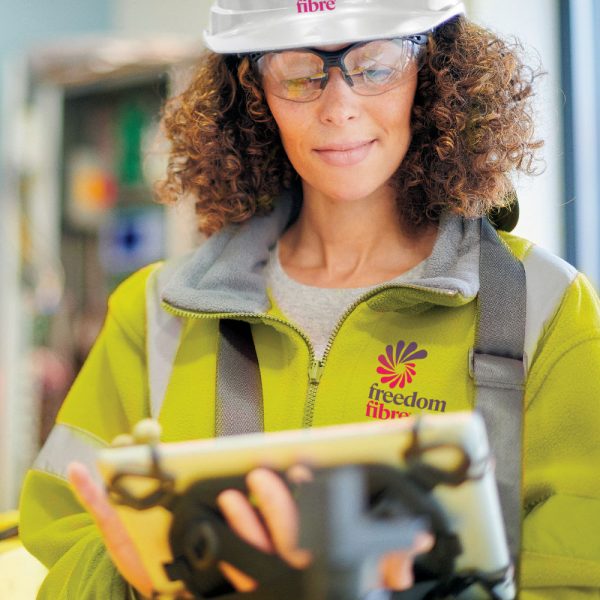

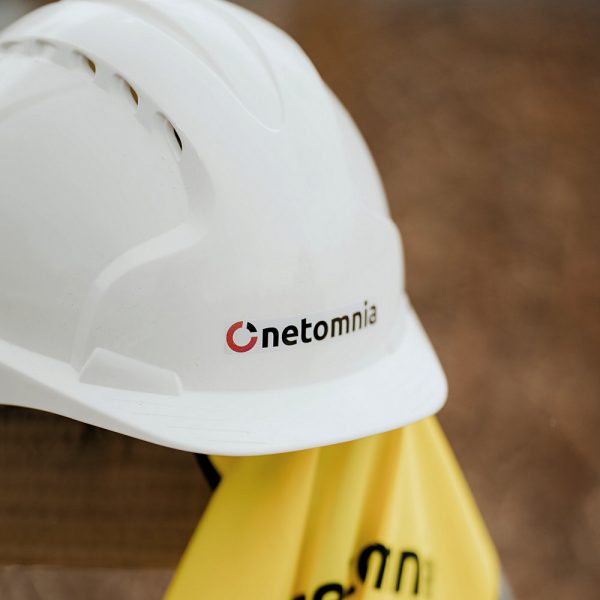
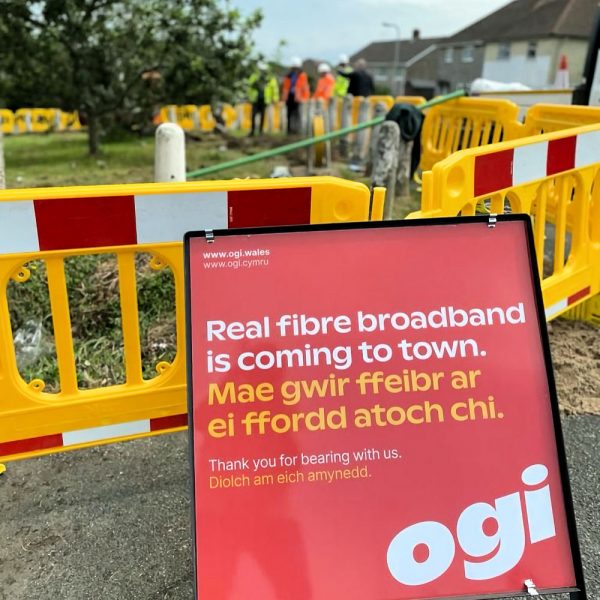


































The 5G conspiracy idiots are going to be livid, it’s 12 times more radiation…
Don’t start them off!
By what calculation do you come up with 12 times?
5G stands for 5th Generation and not for 5Ghz.
I believe he’s joking John 🙂 .
Because 60ghz is 20x more then 25ghz 🙂
Really the radio sensitivity people should be told that problems with waves only starts in the terahertz range generally above the light range, ghz is way below the light range (but radio sensitivity people won’t believe what they been told shouldn’t hey should be left in the watch list and be the first ones to be looked at when a mast is damaged as well as “truthers” as well as they are more Likey to set a mast in fire then a radio sensitivity person)
If they want to be scared of somthing they should be worried about light bulbs or the Sun
hehe lol only 17x stronger… it’ll be fine 😛
You guys are nuts wait until the FCC gets sued for wireless harms you will not think conspiracy then.
Typical..ad hominem…thats the level of your intellect..or lack of more like it..brain washed slave
Say good bay to you testicles
So Facebook will become another FWA ISP but do we know if there are plans to be a wholesaler to other ISPs?
“Facebook claims to have tested all of this new kit in both rain and snow without any problems, which has often been a concern due to the inherent weakness of signals in the 60GHz band (i.e. it’s easily disrupted, particularly by physical objects).”
It would be interesting to know how it copes with trees, buildings etc or if it’s effectively limited to short-range, line-of-sight deployment.
At 60GHz you can better believe it’s not going to penetrate houses or buildings/trees etc. Spot on
> mesh FWA network could make more sense in areas where fibre for FTTP would be expensive.< Good point. It really could help rural villages. Bring it on, mmWave FWA!
How ?
You’d either have to run a backhaul out to the village or a long range Wireless link, to then connect up a bunch of these limited range devices with mains power.
We keep being told the largest cost for fibre to small villages is the main fibre back to the AG node, rather than the end user connections, which shouldn.t come in any more expensive than any other street in any town.
I knew it! I’ve been saying it all along! These globalists will stop at nothing to render us true patriots infertile with their evil EUSSR commiewaves! I can feel my chestnuts turning into chickpeas as I type!
Tin foil shall protect me!
@Mike: “Tin foil” PAH! I won’t have that no-doubt Chinese made tat in my Arghran Blanks funded accommodation! I wear a BRITISH cast iron chastity belt!
@Nighjel
The Arron reference threw me for a moment. Fun fact: Google searches for “Arghran Blanks” tell you all about afghan blankets – which are definitely more useful! 😉
@New_Londoner: Afghans? PAH! The only time they were useful was for the Breaking-point poster! RULE BRITANNIA!
Good network
Sounds like quite limited application. I gather the requirements are an area with a good incoming connection, houses far enough apart to make fibre too expensive, but within 250m of each other. So possibly the edge of villages, but not for dispersed rural properties which are too far apart.
Sounds like a great way to provide connectivity in dense areas sure, especially if they could be powered off street lamp poles. But even more limited than 5G is for any rural application, Range is king out here in rural land folks.
Where exactly does anyone think the Power is coming from for these devices in true rural areas? And if you’re having to run power cables in along rural roads for this then surely you’d be better running fibre in.
Marc Zuckerberg is a terrible person and facebook is a terrible company but the tech seems cool.
Fiber is cheap. Faster. More secure. And SAFER.
It’s actually easier to hack a WiFi router than hack data between a cellular connection & a phone!
Having [home] mobile broadband can be cheaper too. For example my home 4G broadband costs less than the average cost of fibre & get consistently high speeds. Also ready for when 5G comes to my village.
In both cases the user would have a home wifi router anyway
@mike, I am aware of that! But a user could also just use a phone to tether too.
I realised I hadn’t stated that in my reply.
I think they should put a whole slew of these antennas right outside Jamie’s bedroom window.
Facebook are highly incompetent at stopping prolific spammers on their platform so based on that, what makes anyone feel they can deliver anything in real life? I severely doubt it.
Even the Facebook satellite did not want to spend its entire existence processing spam get rich posts so decided to blow up on launch rather than face a life of misery.
I am told Facebook employ “some of the best people in the world” but I see no evidence of this whatsoever. Intelligent staff would make the platform better, it just gets worse.
Facebook is merely a fantastical case of The Emperor Has No Clothes.
How would you feel if it had been proven that the nose bleeds that your child had been getting frequently were a direct result of a 4g service, let alone 5g at 60ghz? Bit different when it comes to your doorstep and you have to try and move house.